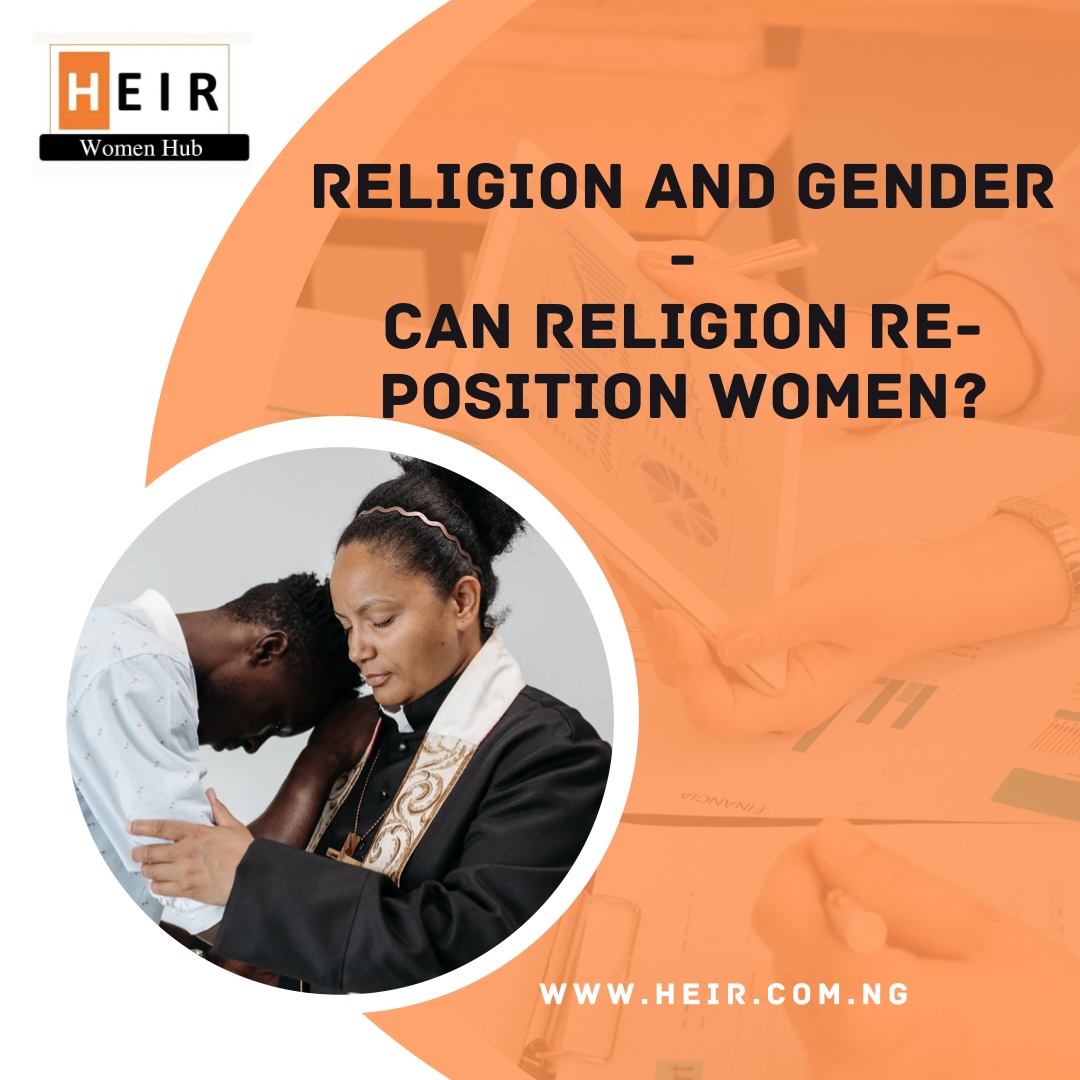
Doing gender in Nigeria already has an assumption that when speaking to gender, one is referring to only women. In a broader context, men and women make up the categories of gender identities in the society. Religion is a tool used to reinforce the performance of gender to continue the social ordering system and discipline required to maintain the balance. Religion is ‘culpable’ in the sense that in the early 18th century, European missionaries used this medium to colonise the society. The colonisers mission was not only to capitalise on the economic vibrancy of the nation due to the reinstate status of Nigeria, the locals were civilised in the way and lifestyle of the West. Religion, through the church as an example, imposed certain ‘tenets’ to restructure gender (man and woman) ways of being.
Religion played a role to indoctrinate, capitalising on scriptural references to emphasis on the social norms we see and experience today. While biblical intentions are to benefit all gender, western transcription into gender roles was to dominate and oppress. This is shown in the separation of duties, leadership, agency, communication and autonomy. Men and women were fit into behavioural roles that has been a factor in how gender is performed.
Today, religious tenets differ from doctrine to doctrine. Treatment of women and men follow certain rules that emphasises the dominance of powers over women and religion upholds and guards this. Women are treated differently in bodies they carry, expectations vary depending on class difference. Institutions of power have written the tenets from religion, into their organisations policy. Politics and entrepreneurship have reinforced the exclusion of women in positions of leadership. And why won’t they, you just need to look across the country to realise that women are not in leadership positions of religious and traditional institutions. A leader is presented and represented by a man, no matter the doctrine; women are either ‘behind’ or made to be seen as ‘beside’ while handling the ‘women’ of the congregration. Men can speak to men and women in religious settings but women speak to women, speaking to men in a religious congregation can be rare.
To tackle issues of gender, violence, sexual harassment and rape, unemployment, maternal health, raising children, child abuse, divorce, infertility, poverty, mental health and lack of right representation of women, can we really look to religion? An inclusive approach identifies seeking out leaders in religious and traditional institutions, which are mainly men, to ‘commit’ to changing the societal norms and reduce the prevalence of issues against women. Men that have been raised to a privilege position and standpoint and have been insulated from the core biting issues women face? While this campaign has some face to it, does it infleunce the behavioural and attitudinal change and go the long haul it should in challenging the social norms that the religious and traditional leaders reinforce by their positionality? How do we monitor and measure this changes beyond campaign efforts and sensitisation programs? How do we influence actual material change?
You may ask, what about the women in the positions? The women ‘behind’ the men in these institutions? Good question. How is it that these ‘powerful’ women are sometimes missing in global campaigns to end GBV? Why is the INGOs not including women who are running ‘successful’ churches with men, as part of the ‘voices’ required in ending social norms’s influence on the discrimination of women? The institutions with large crowds, all over the country, have women; whose voice is being heard? Or are those women in the same voiceless positions as their female members?
It looks to me that the goal of the colonisers in the 18th century, is still being achieved in our institutions today. If the religious leaders are only men, how do we expect this to reflect in other areas of leadership? In the church, men are leaders, women will be ‘given’ an opportunity to address the congregation on days allocated to women. There are very small amount of women I acknowledge, who ‘lead’ church groups and their husbands are ‘beside’ their leadership, the number of women is as abysmal as the number of women in NASS in Nigeria.
To focus on religion as a platform to end domination over women is a good idea but a shaky one. One can ask how many churches have a dedicated domestic violence department or a dedicated sexual harassment and rape section or child abuse support. The church largely discriminates against divorce and mature singles, women who do not ‘look’ like the prescribed ‘ideal’ and considers these group in isolation, with a positioning that strongly excludes women in those categories. It begs the question- within the religious circles, do women discriminate against women? Are women reinforcers of dominant masculinity in religious and traditional circles? Do these oppression exist or ‘children’ of God don’t get troubled in such trials? We all look to the State for remedies, as should, but we should all hold our individual places of ‘worship’ accountable, shouldn’t we?
Religion does gender in a manner that positions women as inferior in many forms institutionalised by tenets into spaces outside the places of worship. Religion can be the platform that challenges the norms and societal expectations we all – men and women- experience and can go a very long way to end discrimination.
The question is, who benefits from this current situation? If a benefit realisation be considered, would religion re-position women?
Añuli Aniebo
